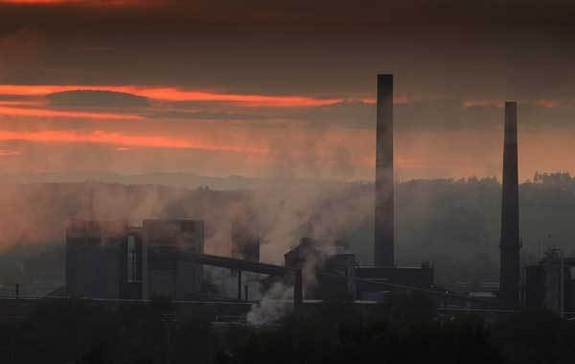IPCC to Release Major Climate Change Report Tomorrow

The Intergovernmental Panel on Climate Change (IPCC), an organization created by the United Nations to assess the state and science of global warming, will release part of its newest major report tomorrow (Sept. 27).
The report — known as the Fifth Assessment Report, or AR5 — will be the first assessment from the group since 2007. More than 250 scientists met in Sweden this week to finalize one section of the AR5: the Working Group I report. These findings, which examine the science of climate change, will be released tomorrow.
"This is the physical science basis for how and why the climate is changing, and how it might change in the future," said Alden Meyer, director of strategy and policy for the Union of Concerned Scientists, a science advocacy group headquartered in Cambridge, Mass. [Best of the IPCC Report Leaks]
The IPCC's latest assessment will likely raise the level of certainty that human activities are responsible for the last 50 years of global warming, said Heidi Cullen, vice president and chief climatologist for Climate Central, a nonprofit science journalism organization based in Princeton, N.J.
"Science is more certain than ever that the majority of the warming since 1950 has, indeed, been caused by human activity," she told reporters at a news conference earlier this month.
The IPCC report, which combs through all of the most recent published and peer-reviewed research on climate change, is also expected to provide updated information on sea level rise, melting ice, global average temperatures and extreme weather events, such as drought or heavy rainfall.
"Another place where I think we're going to see a big change in the IPCC report this time is how it deals with the role of ice loss in Greenland and Antarctica in sea level rise," said James McCarthy, a professor of biological oceanography at Harvard University in Cambridge, Mass., and an author, reviewer and co-chairman of previous IPCC reports.
Sign up for the Live Science daily newsletter now
Get the world’s most fascinating discoveries delivered straight to your inbox.
"When we were wrapping up the Third Assessment [in 2001], it was not clear that one would expect to see large changes in the ice of Greenland over the next several decades," McCarthy told LiveScience. "What became clear to us — as we saw in 2002, 2003 and 2004 — [is that] we've been wrong. The Greenland ice is now changing faster in just a few years."
The IPCC reports reflect consensus within the scientific community on the state of global warming, and are designed to inform policymakers on the risks and potential impacts of climate change. The reports involve thousands of scientists from around the world who volunteer to write and review the report's four sections. The assessments are also reviewed by government officials from more than 120 participating countries.
The other sections of the AR5 — the Working Group II report that assesses the socioeconomic impacts of climate change, the Working Group III report that looks at mitigation factors, and the Synthesis Report that sums up all the findings and provides guidance for policymakers — will be released in 2014.
The IPCC will hold a news conference tomorrow at 10:00 a.m. CET (4:00 a.m. EDT) in Stockholm, where scientists have been meeting to discuss the Working Group I report. The news conference will be webcast live at ipcc.ch/webcast.
Follow Denise Chow on Twitter @denisechow. Follow Live Science @livescience, Facebook & Google+. Original article on Live Science.

Denise Chow was the assistant managing editor at Live Science before moving to NBC News as a science reporter, where she focuses on general science and climate change. Before joining the Live Science team in 2013, she spent two years as a staff writer for Space.com, writing about rocket launches and covering NASA's final three space shuttle missions. A Canadian transplant, Denise has a bachelor's degree from the University of Toronto, and a master's degree in journalism from New York University.









